Consequences
The effects of Body Stress
When the point of stress overload is reached, the stress becomes “locked” into the body and manifests as lines of tension.When tension becomes stored in a physical structure, the tissue is compressed, causing irritation of nerves. Internal organs may stop functioning optimally as a result of blocked nerve path-ways, which may result in discomfort, pain, illness, medical conditions or continuously feeling listless and tired. Body stress in the spine has the most far-reaching effects, as each spinal nerve supplies a large area of the body, both on the surface and internally.




Stiffness may become noticeable, leading to postural distortion, loss of flexibility, pain or numbness.
A person with body stress may also feel tense, tired, and lacking in energy and enthusiasm for life. Headaches, migraines, backache, indigestion, tingling and numbness in the arms and hand, calve cramps, burning and painful feet might all be a result of locked-in body stress.
It is also possible for body stress to be present without the individual feeling any pain or stiffness – he or she will simply come to accept as normal their sense of having less than 100% well-being.
While the stress or tension remains stored in the body, the normal tone of the body is disturbed, causing a reduction in its general efficiency. As its defence mechanisms become weakened, the body becomes less and less able to deal with further stresses to which it is subjected daily. In this way the individual moves increasingly further away from the optimum state of health.
THE EFFECTS OF BODY STRESS IN BABIES AND CHILDREN
A common sign that a baby has body stress in the neck is constant crying for no apparent reason. When body stress is present in the lower back the baby will cry when the hips are lifted while the nappy is being changed. The impact on the nervous system may cause constipation. Body stress in the area of the diaphragm may result in colic. Toddlers who refuse to walk and demand to be carried, or who complain of sore legs, (so-called growing pains) very likely have body stress in the lower back.
The leg muscles may be affected, causing a tendency of the feet to turn inwards. Bed-wetting may occur if the nerve supply to the bladder is irritated. At school, a child with tension in the neck may lack concentration and become disruptive. If there is pressure in the lower back, the child may be restless and unable to sit still.
NOTE: Body Stress Release is not a diagnosis or treatment of any condition or disease. It is concerned only with locating and releasing stored tension, so that the body is assisted in its in-built ability to maintain and heal itself.


 Français
Français Nederlands
Nederlands